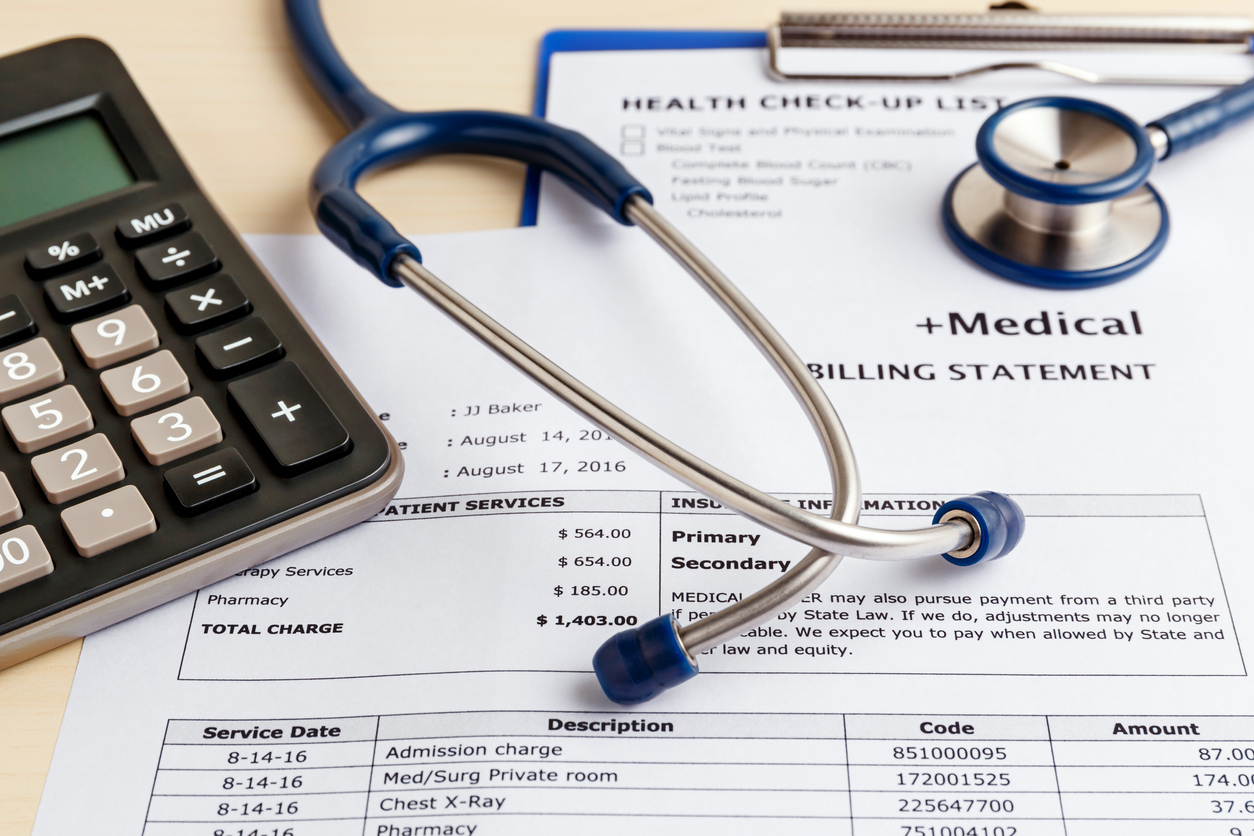Medical bills are an expense that can come out of nowhere. It’s hard to plan for accidents and sudden declining health. Medical bills can be shockingly large. It’s reported that 50% of Americans now carry medical debt. The number of people who don’t pay medical bills is increasing.
Not paying medical bills will carry long-term consequences. Before you go down that road, it’s worth it try to at least lower your medical bills.
Reducing Your Medical Debt First
Did you know that up to 80% of medical bills contain errors? So, your chances of finding a mistake are very high. You need to review your bill for errors like double-billing and any charge that seems vague. Ask questions. If your medical bills are not making sense to you, keep asking questions until they do.
Additionally, medical procedures have a blue book value. Hospitals don’t always charge patients and insurance companies the same amount for the same procedure. Make sure you’re paying the amount a hospital will accept for a procedure and nothing more.
You can also negotiate your bill. Tell the hospital that you’re going to require a payment plan to be able to afford the payment. They do want you to pay, so you might get a reduction. They may want to see your tax returns but financial assistance is possible. I may be possible to lower your payments and interest.
Here’s What To Expect
What happens if your bill gets lost in the mail?
It doesn’t matter. If you don’t seek out and pay your medical bills, you’ll see a snowball effect where your balance increases aggressively.
Potential Lawsuits
In some cases, you can end up with a lawsuit against you. This can allow the healthcare provider to use additional means to get paid. For example, they could get permission to take money directly from your paycheck.
One hospital was sueing so many patients that the court reserved a morning every month for their cases. On one particular day, only a few of the 300 people summoned to court showed up. The majority did not appear in court resulting in default judgments made against them (their wages can be taken).
Filing for bankruptcy is an option. Yes, it will make your credit lower for some time but it might leave you in a better place than if you were to continue avoiding medical bills. If you already have good credit it’s a good idea to look into other options before filing for bankruptcy.
Fees and Interest
Your health care provider will try to urge you to pay the bill quicker by increasing your payment with late fees. Doesn’t sound fair but you likely agreed to this when you signed consent forms. This is why it’s a good idea to call your provider and work with them.
If you don’t pay your medical bills you could end up with an interest rate of up to 12%. How’s that for a snowball? Definitely something you want to stop or slow if you can.
Collection Agency
If you continue to neglect your bill, it’s likely your account will be sent to a collection agency. 18% of Americans have medical debt in collections. This means the phone calls and letters will continue to arrive. Debt collectors are very persistent.
Credit Damage
Your debt collector will eventually report your unpaid medical bills to credit bureaus. After 180 days, you’ll see the bills affect your credit score.
Four out of ten Americans with health insurance from their employers had problems paying medical bills last year.
In a survey by The CommonWealth Fund, 40% of adults who struggled with medical debt say their credit rating has suffered as a result.
One collection account can decrease a good credit score by 50-100 points.
A low credit score will make it difficult to get credit cards, loans, or qualify for low-interest rates in the future. These bills can stay on your credit report for seven years.
Options To Help Pay Your Medical Bills
Home Equity Loan
Don’t forget about your assets when it comes to paying off medical bills. If you have equity in your home you could pay off medical debt with a home equity loan.
The amount of equity you have in your home is the difference between the market value and the amount you owe on your mortgage. This money stays in your house until you sell it, unless you get a home equity loan. Which is only an option if you meet the criteria. You must have a good credit score, a steady income, and a history of being a good borrower.
A Hardship Withdrawal From Your 401K Account
A 401K account is money for your retirement. The IRS approves eight circumstances for “hardship withdrawals”, and medical bills are on that list.
In a lot of situations, you’re only able to use the funds that you contributed to the account and not what your employer contributed. But some employers will allow it if you meet their requirements.
A Loan From Your 401K Account
If your employer’s plan allows it, you can take a loan out of your 401K account. You don’t need to give a reason for the loan. And you can borrow money and pay it back with interest through payroll deduction. The IRS determines how much of your funds you may borrow which is usually around 50% of your balance.
A Personal Medical Loan
A personal loan can help you consolidate your debt. You can pay off the various bills so that you’re left with just one single monthly payment with a lower interest rate. This is a good idea if you have a high credit score and can get a low-interest rate on the loan. Make sure your monthly payments fit into your monthly budget before committing to a high-interest rate.
Financial Assistance Programs
The U.S. Department of Health and Human Services has a list of over 100 financial assistance programs that you can filter by state.
Many states have strong financial assistance policies for hospitals. These states are:
- California
- Connecticut
- Illinois
- Maine
- Maryland
- Nevada
- New Jersey
- New York
- Rhode Island
- Washington
Charities and Nonprofit Organizations
There are a lot of charities and organizations set up for people with specific conditions. Some of those organizations are:
HealthWell Foundation helps people with chronic conditions or diseases like cancer pay their medical bills.
Cancer Care is another organization that helps people with cancer pay their co-pays.
Leukemia and Lymphoma Society helps people with blood cancer pay their out-of-pocket bills.
Patient Advocate Foundation provides co-pay relief and grants to those who are eligible.
Using Your Life Insurance Policy To Pay Your Medical Bills
Many people don’t consider their life insurance policy to be an asset. They don’t realize they can sell it. A life settlement is when you sell your policy for a lump sum of cash. The buyer takes over the premiums and gets paid the death benefit when you die.
Many people get hit with a lot of medical bills as they’re getting older. Life settlements offer a great alternative to going down the snowball path when you don’t pay medical bills.
People have used life settlements to pay for cancer treatments to lessen their medical debt.
Keep in mind to qualify for a life settlement you need to:
- be at least 70 years old or have significant health impairments
- have a policy with a face amount of at least $100K
- have a policy that’s been in force for at least 2-5 years
If you’re wondering how much you could get for your life insurance policy you can get an idea with a life settlement calculator. You can then reach out for a free consultation to hear more about your options.




